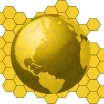
Step into the Apitherapy World
Bee products are naturally secreted by bees through glands (e.g., venom, beeswax, and royal jelly) or products obtained via bee collection and processing (e.g., nectar, bee pollen, and resin). The bee products currently used for fermentation are honey, bee pollen, propolis, and royal jelly, which already have high nutritional value and biological functionality, allowing their extensive consumption.
Product
Bee Venom

Tanzanians urged to adopt bee venom as a natural alternative for boosting immunity
GEITA: The Tanzania Forestry Service (TFS) has urged Tanzanians to adopt bee venom as a natural alternative for boosting immunity against both infectious and non-infectious diseases. TFS Senior Conservator from the Silayo Tree Plantation in Geita District, Mr. Juma Mdoe made the recommendations recently in an exclusive interview with the Daily News. READ MORE
Fermentation

Mead: Age Old & Loving It
Mead is one of the oldest and most easily produced fermented beverages, dating back to 7000 BCE, obtained via alcoholic fermentation using diluted honey and yeast. It is rich in nutrients and contains various components required by living organisms. Mead benefits digestion and metabolism in people suffering from anemia and chronic gastrointestinal disorders. Positive effects of fermented foods consumption on humans have stimulated lots of research attention. READ MORE
Bee Bread

Recent insights into chem and pharmacological studies of bee bread
Bee bread is a product of the fermentation of a mixture of pollen, nectar and bee saliva that is inoculated by a wide range of bacteria and yeasts necessary for fermentation after storage in comb cells. Bee bread is regarded as the chief protein resource that bees can utilize, especially for feeding of larvae and adults. Since ancient times, bee bread has been used in different cultures for several nutritional and therapeutic purposes. READ MORE
Bee Pollen

Turkish bee pollen: Composition, regional discrimination and polyphenol bioaccessibility
Bee pollen has received significant attention due to its high nutritional value and the phenolic composition responsible for its bioactivity. The current research aims to investigate the phenolic composition and antioxident capacity of 29 monofloral and 21 polyfloral bee pollen samples obtained from different regions of Türkiye by spectroscopic and chromatographic techniques
READ MORE
Action + Activity
American Apitherapy Society

American Apitherapy Society’s annual forum, Charles Mraz Apitherapy Course and Conference 2024: Emerging Trends in Apitherapy, was a two-day conference held October 4-6, 2024, in Chicago, IL, USA, where ten presentations were given with an additional workshop demonstration of apitherapy procedures. www.aas.org
Beekeepers Age Better


A study published in the National Library of Medicine found that beekeepers have longer telomeres, which are a marker for biological aging. The study also found that beekeepers who regularly consumed bee products, such as honey, propolis, and royal jelly, had even longer telomeres.
Apimondia 2025
The 49th APIMONDIA Congress in Copenhagen September 2025 will be organized jointly by the beekeeper associations in Sweden, Norway and Denmark.
Important Dates
Deadline for Reduced ApiExpo Fees
DEC 31 2024
Abstract Submission Deadline
FEB 15 2025
Notification of Accepted Abstracts
APR 15 2025
Deadline for Early Registration Fees
MAY 31 2025
Deadline for Online Registration Fees
SEP 5 2025
World Honey Bee Day 2025


World Honey Bee Day is celebrated on the third Saturday of August each year.
It’s a day to recognize the value of bees and beekeepers, and to encourage people to support bees and their habitats.
AUGUST 17, 2025

